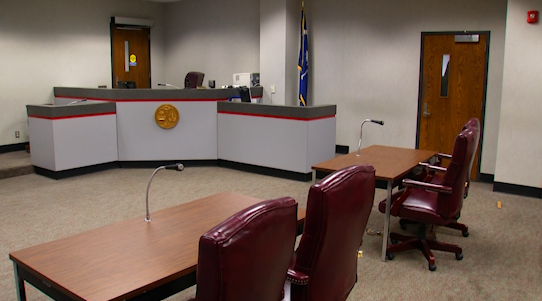COLUMBIA, S.C. (WSPA) – Judicial reform is becoming one of the most talked‑about issues in South Carolina.
While debates about how judges are selected have long dominated the conversation, the recent push goes far beyond that.
Lawmakers and legal experts have called for a broader overhaul of reform efforts, including oversight of magistrate appointments, as well as greater accuracy in court records and prison data systems.
Currently in South Carolina, the process of selecting a judge is unique.
Unlike most states, where governors are tasked with appointing judges and voters elect them, South Carolina is one of two states that lets state legislature select judges.
A law that took effect in July 2025 gives the governor a limited role in some appointments, but the South Carolina General Assembly still holds the majority of the power in choosing judges.
“They expanded the committee so that the governor got more power, so the legislature gave up some of their own power voluntarily,” said Rhodes Bailey, a South Carolina based attorney.
The law also includes allowances for appointing magistrate judges, who handle bail, warrants, and minor criminal cases. Many magistrates are appointed without formal legal experience.
“[The magistrate position.] That’s a judicial position that is the gateway to all of these criminal prosecutions,” said Gov. Henry McMaster said. “It can be a devastating thing. It’s heavy duty legal work.”
McMaster and Attorney General Alan Wilson said judicial reform is a top priority for judicial reform.
“You absolutely need to have a minimum level of experience to be able to sit in as a magistrate in a local area, whether it’s a law degree; it could be experience in law enforcement experience in some other capacity,” Wilson said.
Concerns regarding outdated technology and inaccuracies in court records have also been vocalized by state leaders. When data is wrong or missing, the consequences can be huge; causing incorrect releases, wrongful detentions, or missed charges.
“Processing everything from fingerprints to records,” he said. “Put new funding and improve the technology, that way criminals are classified when they come in and out of jail.”
Rep. Micah Caskey (R – Lexington) said the Mother Emanuel AME Church shooting in Charleston that took place in 2015 is a prime example.
“Part of the problem in the system was that information regarding pending charges against Dylann Roof had not been accurately entered into the system,” Caskey said.
Wilson said although he can’t enact judicial reform himself, his office has worked for years to use cases and investigations as ideas and suggestions for lawmakers.
“Give us a report with findings and recommendations that the General Assembly can use as a roadmap to do reforms to our criminal justice system,” he continued.
While there is broad agreement among officials about the kinds of reforms needed from magistrate qualifications, oversight, and technology upgrades, the actual power to enact change lies with the state’s General Assembly.
Only lawmakers can pass bills that mandate minimum qualifications for magistrates, allocate funding for system upgrades, reform judicial selection panels and strengthen transparency and oversight.
Copyright 2025 Nexstar Media, Inc. All rights reserved. This material may not be published, broadcast, rewritten, or redistributed.
For the latest news, weather, sports, and streaming video, head to WSPA 7NEWS.








